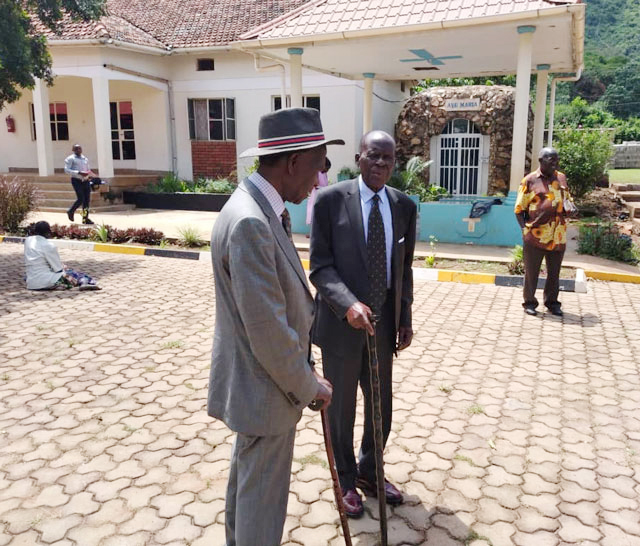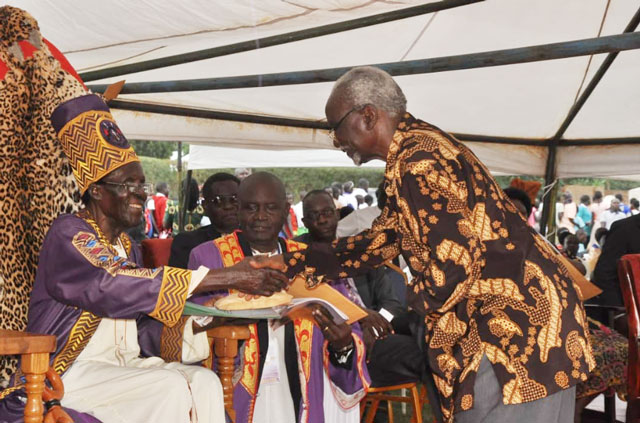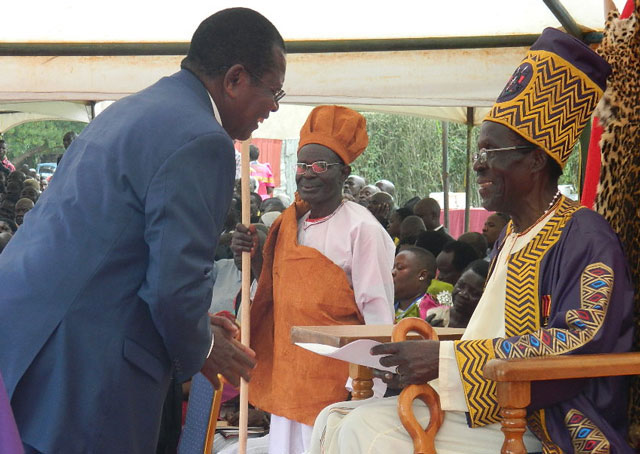
Tororo, Uganda | Louis Jadwong | Members of the Luo Council of Elders from Siaya County in western Kenya will visit Uganda on a three-day cultural exchange starting on Tuesday.
The Jopadhola Prime Minister (Jago) Richard Josel Obbo confirmed preparations for the visit are in an advanced stage, saying he will give details to the press after a Monday morning cabinet meeting of the Tieng Adhola Cultural Institution (TACI). The Luo Council of Elders chairman Ker Willis Opiyo Otondi, will lead a delegation mainly from Siaya.
County Governor for Siaya Cornel Rasanga Amoth confirmed the visit in a letter to the TACI Jago last week, in which he thanked the leader of the Jopadhola Kwar Adhola Moses Stephen Owor for joining them in their recent celebrations.
“I thank you for sending a delegation from Tororo to attend the 3rd Got Ramogi Festival in June this year,” said Governor Rasanga Amoth in his letter.
“The planned visit,” he said, “has been occasioned by the need to expand our horizon in regard to cultural exchange, and the delegation have lined up several discussion points which they would like to share with you when they come.”
The visit, the first of its kind, will make the the ongoing Jopadhola celebrations marking the 20th anniversary of the crowning of Kwar Adhola memorable.
At the main celebrations in Achilet, Tororo in August that was attended by a delegation from Kenya, President Yoweri Museveni hailed the leader of the Jopadhola and the Tieng Adhola Cultural Institution (TACI) for partnering with government in its efforts to spread development in Tororo.

“I commend your good leadership and partnership with government in ensuring that the people support government programmes for peace and development. I am gratified to note that since the restoration of this cultural institution 20 years ago, the NRM government has enjoyed cordial and a healthy relationship with your kingdom,” President Museveni said then.
“We thank God for blessing His Royal Highness the king and his family with good health and wisdom. We also thank God for the peace, freedom, security and general tranquility prevailing in the country that allows such important celebrations to take place,” said Museveni, in a speech read for him by Ali Kirunda Kivejinja, the Second Deputy Prime Minister and Minister of East African Community Affairs.
“With the revival of our cultural roots, Uganda is proud of her heritage. Our kingdoms are much older than the political unit – Uganda; their role in the history of Uganda is, therefore, of great importance,” Museveni concluded.

‘We are partners in development, and not rivals’
Kwar Adhola, 93, had earlier welcomed delegations from several kingdoms including Buganda, Busoga, Bunyoro, Masaba, Bugwere, and from Kenya, represented by the Luo elders council plus a group of governors and their deputies from Siaya and Kisumu in Kenya.
“Before the inception of Tieng Adhola, the people of Padhola were breeding and feeding on divisionism, mutual mistrust, suspicion and lack of confidence and patriotism for Padhola and their country, Uganda,” Kwar Adhola said in his speech to the tens of thousands that gathered for the celebrations.
“The people of Padhola are therefore, committed to co-exist peacefully with other ethnicities and to reciprocate every gesture of respect and fraternity.”
He however challenged the Jopadhola to end land fragmentation, which he says has made it difficult for large scale commercial agriculture to be undertaken in Padhola.
“The culture of dividing land into small plots to the children of the deceased has led to serious fragmentation of Land, which now on average stands at less than an acre per household. This makes it difficult for large scale commercial agriculture to be undertaken in Padhola,” he said.
According to Prof. P.G. Okoth and Dr. Yokana Ogolla, the Jopadhola were part of migrant groups of Luo people who moved from Bar-El-Ghazel in South Sudan and eventually pressed their way southwards through Teso and Kaberamaido till they reached Budama in present Tororo district around 1500.
Adhola moved with his brother Owiny who led a group through Tororo to western Kenya. They are the present day Luo.
The group that remained in Tororo under Adhola later constituted the present Jopadhola ethnic group.
RELATED
President Museveni hails Kwar Adhola’s leadership #KwarAdholaAt20 https://t.co/jBX8sflZgc pic.twitter.com/rB3I53h2yX
— The Independent (@UGIndependent) August 10, 2019
 The Independent Uganda: You get the Truth we Pay the Price
The Independent Uganda: You get the Truth we Pay the Price



